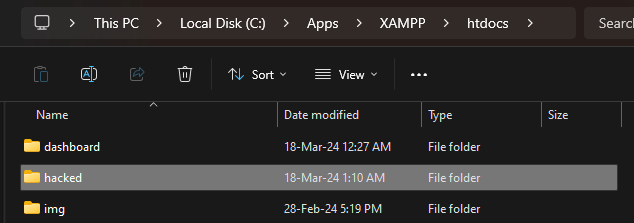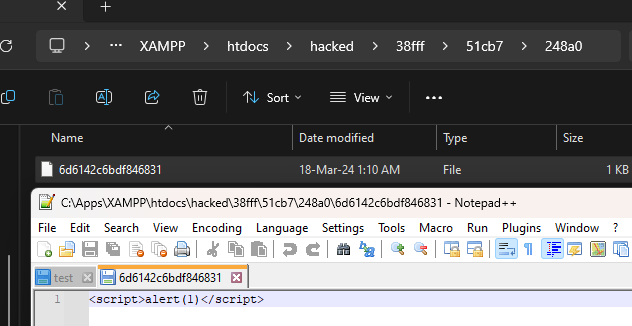Tag
#git
### Summary There is a Path Traversal vulnerability in Attachments that allows attackers with admin rights to upload malicious files to other locations of the web root. ### PoC 1. In settings, the attachment location is vulnerable to path traversal and can be set to e.g ..\hacked  2. When the above is set, attachments files are now uploaded to e.g C:\Apps\XAMPP\htdocs\hacked instead of C:\Apps\XAMPP\htdocs\phpmyfaq\attachments 3. Verify this by uploading an attachment and see that the "hacked" directory is now created in the web root folder with the attachment file inside.   ### Impact Attackers can potentially upload malicious files outside the specified directory.
An issue in @thi.ng/paths v.5.1.62 and before allows a remote attacker to execute arbitrary code via the `mutIn` and `mutInManyUnsafe` components.
By Deeba Ahmed New Dark Web Tool GEOBOX, sold for $700 on Telegram and underground forums, hijacks Raspberry Pi, allowing cybercriminals to fake locations and evade detection. This is a post from HackRead.com Read the original post: New GEOBOX Tool Hijacks Raspberry Pi, Lets Hackers Fake Location
Unidentified adversaries orchestrated a sophisticated attack campaign that has impacted several individual developers as well as the GitHub organization account associated with Top.gg, a Discord bot discovery site. "The threat actors used multiple TTPs in this attack, including account takeover via stolen browser cookies, contributing malicious code with verified commits, setting up a custom
By Owais Sultan Entering the dynamic world of cryptocurrencies is pretty exciting. But one can easily get overwhelmed with the amount… This is a post from HackRead.com Read the original post: Step-by-Step Guide to Creating Your First Crypto Wallet
The Iran-affiliated threat actor tracked as MuddyWater (aka Mango Sandstorm or TA450) has been linked to a new phishing campaign in March 2024 that aims to deliver a legitimate Remote Monitoring and Management (RMM) solution called Atera. The activity, which took place from March 7 through the week of March 11, targeted Israeli entities spanning global manufacturing, technology, and
Versions of the package web3-utils before 4.2.1 are vulnerable to Prototype Pollution via the utility functions format and mergeDeep, due to insecure recursive merge. An attacker can manipulate an object's prototype, potentially leading to the alteration of the behavior of all objects inheriting from the affected prototype by passing specially crafted input to these functions.
German authorities have announced the takedown of an illicit underground marketplace called Nemesis Market that peddled narcotics, stolen data, and various cybercrime services. The Federal Criminal Police Office (aka Bundeskriminalamt or BKA) said it seized the digital infrastructure associated with the darknet service located in Germany and Lithuania and confiscated €94,000 ($102,107)
paddlepaddle/paddle 2.6.0 allows arbitrary file read via paddle.vision.ops.read_file.
### Summary While examining the "App Link assetlinks.json file could not be found" vulnerability detected by MobSF, we, as the Trendyol Application Security team, noticed that a GET request was sent to the "/.well-known/assetlinks.json" endpoint for all hosts written with "android:host". In the AndroidManifest.xml file. Since MobSF does not perform any input validation when extracting the hostnames in "android:host", requests can also be sent to local hostnames. This may cause SSRF vulnerability. ### Details Example <intent-filter structure in AndroidManifest.xml: ``` <intent-filter android:autoVerify="true"> <action android:name="android.intent.action.VIEW" /> <category android:name="android.intent.category.DEFAULT" /> <category android:name="android.intent.category.BROWSABLE" /> <data android:host="192.168.1.102/user/delete/1#" android:scheme="http" /> </intent-filter> ``` We defined it as android:host="192.168.1.102/user/delete/1#". Here, the "#" character at the end of the hos...